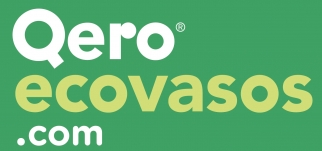

Qero Ecovasos

Buenos Aires Province, Argentina
April 2017
Other/general wholesale trade
Wholesale/Retail
Argentina,
Chile,
Uruguay
Qero fights against the environmental scourge of disposable cups by replacing them for reusable ones. The ultimate goal of Qero is to help provoke a cultural change by making people aware of the harmful effects of using disposable items, focusing on communication, high quality products and great service. Qero handles a 360® scope of the business, from the production of cups, washing and drying services, assessment in communication and calculation of environmental impact metrics, and finally the recycling of damaged cups (less than 1%) into other sustainable products such as portable trash cans or bike mudguards. Qero's main customers are festivals, beverage companies, artisan beer brewers, corporate and state offices, all of which have embraced the habit of reusing. In the first 4 years since its birth, the company has been able to avoid the use of 50 million disposable cups, which represent 800 tons of plastic waste and 3.000 tons of CO2 emissions.
Overall B Impact Score
Governance 14.8
Governance evaluates a company's overall mission, engagement around its social/environmental impact, ethics, and transparency. This section also evaluates the ability of a company to protect their mission and formally consider stakeholders in decision making through their corporate structure (e.g. benefit corporation) or corporate governing documents.
What is this? A company with an Impact Business Model is intentionally designed to create a specific positive outcome for one of its stakeholders - such as workers, community, environment, or customers.
Workers 20.5
Workers evaluates a company’s contributions to its employees’ financial security, health & safety, wellness, career development, and engagement & satisfaction. In addition, this section recognizes business models designed to benefit workers, such as companies that are at least 40% owned by non-executive employees and those that have workforce development programs to support individuals with barriers to employment.
Community 19.2
Community evaluates a company’s engagement with and impact on the communities in which it operates, hires from, and sources from. Topics include diversity, equity & inclusion, economic impact, civic engagement, charitable giving, and supply chain management. In addition, this section recognizes business models that are designed to address specific community-oriented problems, such as poverty alleviation through fair trade sourcing or distribution via microenterprises, producer cooperative models, locally focused economic development, and formal charitable giving commitments.
Environment 30.4
Environment evaluates a company’s overall environmental management practices as well as its impact on the air, climate, water, land, and biodiversity. This includes the direct impact of a company’s operations and, when applicable its supply chain and distribution channels. This section also recognizes companies with environmentally innovative production processes and those that sell products or services that have a positive environmental impact. Some examples might include products and services that create renewable energy, reduce consumption or waste, conserve land or wildlife, provide less toxic alternatives to the market, or educate people about environmental problems.
What is this? A company with an Impact Business Model is intentionally designed to create a specific positive outcome for one of its stakeholders - such as workers, community, environment, or customers.
Customers 2.6
Customers evaluates a company’s stewardship of its customers through the quality of its products and services, ethical marketing, data privacy and security, and feedback channels. In addition, this section recognizes products or services that are designed to address a particular social problem for or through its customers, such as health or educational products, arts & media products, serving underserved customers/clients, and services that improve the social impact of other businesses or organizations.